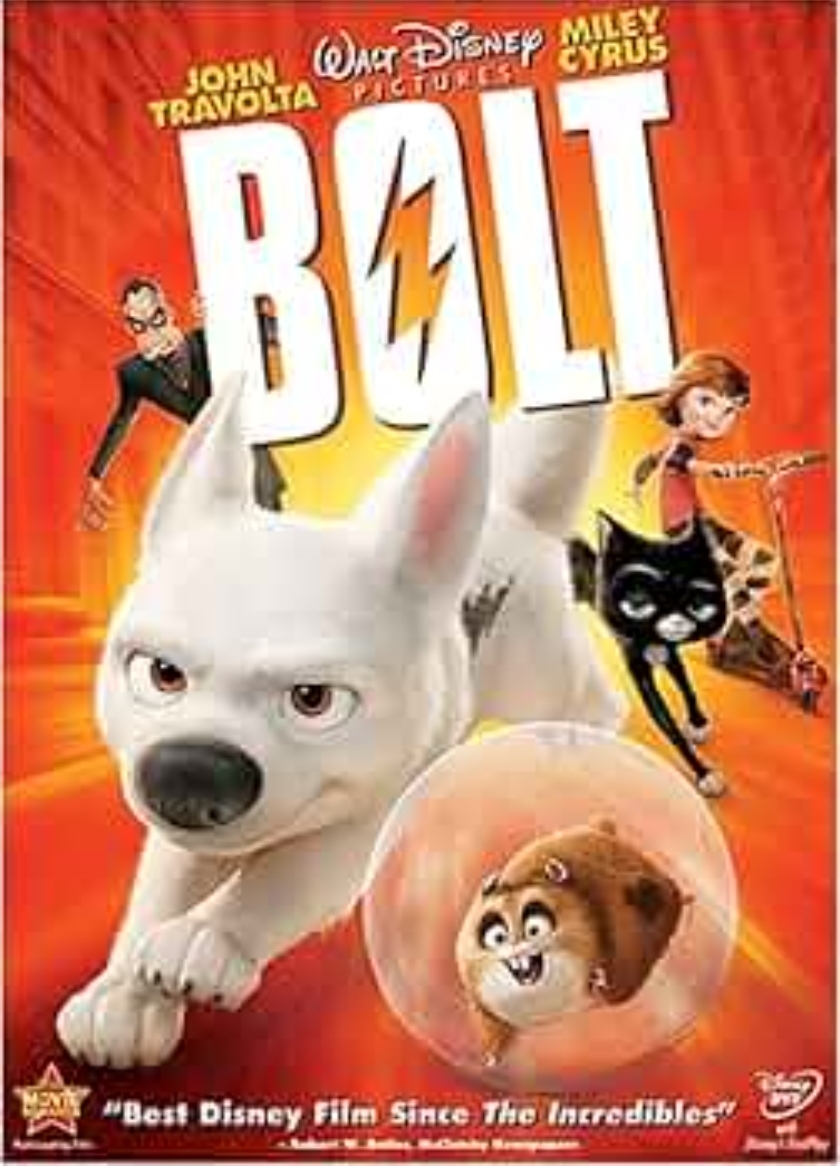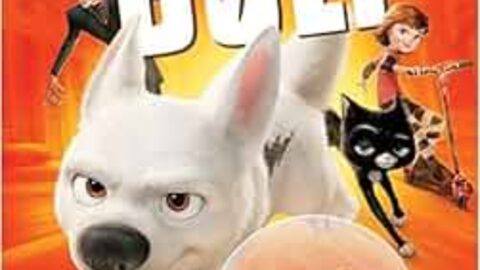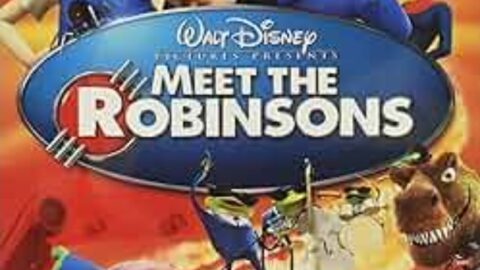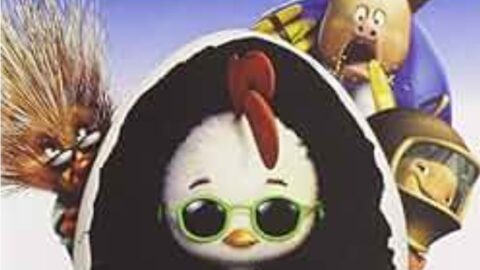Core Question: Who are you when the script ends?
Tagline (spirit): “Real is enough.” — because Agápē makes ordinary holy.
What is Agápē?
In classical Greek, there are four common words for “love”:
- Agápē — sacrificial, unconditional love; wills the good of the other, even at personal cost.
- Érōs — romantic/erotic desire; attraction and longing.
- Philia — friendship/affection; comradeship shaped by shared virtue.
- Storgē — familial love; natural affection within family bonds.
Why Agápē fits Bolt
- Choosing the person over the persona
Bolt learns he isn’t a super-dog—and still risks everything to save Penny in the studio fire, using only ordinary courage (and a hoarse bark) to lead rescuers. That’s agápē: your life before my image. - Storgē made steadfast
Penny’s bond with Bolt is more than pet-owner affection (storgē). She walks away from fame and rebuilds life with him because his good matters more than the show’s success. - Philia that tells the truth
Mittens loves Bolt well by disillusioning him—teaching him what real dogs do (eat, fetch, sleep). Friendship (philia) becomes agápē when it tells hard truths that heal, not flattering lies that harm. - Rhino’s loyal courage
Rhino’s fanboy zeal matures into shared risk—charging into danger with Bolt. Friendship steeped in agápē isn’t applause; it’s showing up. - From control to care
The show’s handlers “love” Bolt as a prop; they manipulate his world to wring out ratings. Agápē refuses to use others—it protects agency and well-being even when it costs money or myth. - Ordinary > invincible
Bolt’s “superpowers” were never the point. The film argues that ordinary fidelity—staying, protecting, telling the truth—outperforms spectacle. Agápē dignifies the everyday. - Letting go to love
Penny and Bolt release the scripted fantasy (and its rewards) to build a quiet, mutual life. Agápē often looks like simpler, truer choices.
Symbols that point to Agápē in Bolt
- Lightning-bolt collar → identity shift: from brand to belonging.
- Carrier & leash → control vs. care; who is this for?
- The studio fire → love proven under cost.
- “Super bark” (now hoarse) → ordinary means used bravely.
- Mittens’ alley lessons → truth that frees.
- Rhino’s plastic ball → zeal converted into service.
Quick takeaway
Bolt reframes heroism: not CGI powers, but agápē—the stubborn, self-giving love that tells the truth, leaves the spotlight, and risks life so the beloved can live. When that love leads, storgē becomes steadfast, philia grows brave, and ordinary courage turns out to be super after all.
The Scripted Hero
Moral Core: Identity by illusion
Bolt is a canine star who believes his TV life is real: laser-eyed villains, super-bark, endless peril. The production seals his world so he never learns the truth. He’s not acting bravery; he’s misinformed into it. When Penny (his human) is “kidnapped” for the show, Bolt escapes the set to rescue her—leaping from fiction into reality.
Lessons
- False narratives can create sincere courage—but misdirect it.
- Identity built on applause is brittle; it collapses when the audience leaves.
- Deception, even for benign reasons, infantilizes the deceived.
Philosophical Frame
- Plato’s Cave: Bolt mistakes shadows (set pieces) for the world.
- Existentialism: Authentic being requires contact with reality, not scripted meaning.
The Road and the Rupture
Moral Core: Disillusionment as doorway to truth
Shipped across the country by accident, Bolt meets Mittens (a street-smart cat) and later Rhino (a fanboy hamster). Bolt’s powers fail because they never existed. Hunger, fatigue, and gravity educate him. Yet he persists because love for Penny is real, even if his powers aren’t.
Lessons
- Reality therapy: The world contradicts our delusions—and that’s grace.
- Love is a better engine than ego.
- Communities of misfits can become truth laboratories: Mittens teaches skills; Rhino supplies faith.
Philosophical Frame
- Stoicism: Distinguish what’s in your control (effort, loyalty) from what isn’t (superpowers).
- Pragmatism: Beliefs should be tested by outcomes; if the super-bark doesn’t move the needle, adjust.
Unmasking & Street Wisdom
Moral Core: Rebuilding identity on competence and care
Mittens reveals the truth: Bolt is a TV dog. He resists, then learns dogness: begging for food, finding water, navigating danger without CGI. He develops ordinary competencies—and discovers they’re enough to protect, serve, and love.
Lessons
- Competence is dignity. The humble skillset beats the glamorous myth.
- Agency grows when illusions die.
- Friendship as midwife of truth: Mittens’ honesty hurts, then heals.
Philosophical Frame
- Aristotle’s virtue ethics: Habits form character; Bolt becomes brave by doing brave things without props.
- Heidegger’s authenticity: Being-with-others (Mittens/Rhino) grounds authentic selfhood.
The Fire and the Choice
Moral Core: Courage without costume
Back in Hollywood, Penny’s career is managed as image; the studio treats Bolt as a replaceable prop. When a stage fire erupts, Bolt cannot summon powers—only love, intuition, and a real bark to guide rescuers through smoke to Penny. He chooses sacrifice over stardom, risking death to protect the one relationship that was never fake.
Lessons
- Real courage is unglamorous: endurance, attention, and self-offering.
- Love reorients risk: you’ll enter the fire when the person matters more than the role.
- Institutions optimize optics; persons protect persons.
Philosophical Frame
- Agape ethics: self-giving love as the highest form of power.
- Kantian duty: Rescue is the right act regardless of publicity or payoff.
A Smaller Life, A Truer Life
Moral Core: Choosing authenticity over acclaim
Penny and her mom walk away from the show; Bolt, Mittens, and Rhino become a real family. The new life is quieter—backyards, fetch, ordinary afternoons. Bolt’s “powers” are gone, but belonging and purpose remain. Real is enough.
Lessons
- Sufficiency: A smaller, truer life often satisfies more than a grand, false one.
- Identity is relationship-first, role-second.
- Freedom is the absence of pretense.
Philosophical Frame
- Eudaimonia: Flourishing through right relationships and daily virtue, not spectacle.
- MacIntyre’s narrative identity: Bolt edits his story from mythic hero to faithful companion.
Symbols & What They Mean
| Symbol | Meaning |
|---|---|
| Super-bark / laser glare | Manufactured identity; power by illusion |
| Collar & leash | Control systems—production’s narrative over selfhood |
| Carrier & shipping crate | Dislocation that forces truth encounter |
| Mittens’ lessons | Street-level virtues: craft, humility, survival wisdom |
| Rhino’s fandom | Belief that outlasts disappointment; zeal redirected from myth to friendship |
| The fire | Trial by reality; purity of motive revealed in crisis |
| Quiet suburban yard | Ordinary goodness as telos (proper end) of a life |
Core Themes (with Real-World Application)
- Authenticity vs. Performance
- Lesson: Living for optics hollows the soul.
- Apply: Leaders/media figures—publish receipts, not just reels; build identity off-camera.
- Truth as Liberation
- Lesson: Disillusionment hurts, then heals.
- Apply: Personal growth plans should include “assumption audits” and real-world tests.
- Love Reframes Worth
- Lesson: You’re not valuable because you’re “super”; you’re valuable because you’re loved and loving.
- Apply: Families/teams: recognize effort, loyalty, and small competencies as success.
- Ordinary Virtues Beat Manufactured Power
- Lesson: Reliability, courage, and care outperform theatrics.
- Apply: Hiring/promotion: reward character and consistent craft over performance personas.
- Leaving the Machine
- Lesson: Institutions drift toward image-management; choose people over PR.
- Apply: Set boundaries: when a job demands a false self, redesign the role or walk.
Character Arcs (as Moral Progress)
| Character | Starting Illusion/Need | Transforming Moment | New Virtue |
|---|---|---|---|
| Bolt | Believes he’s super; identity = role | Accepts ordinariness; saves Penny in fire | Authentic courage; fidelity |
| Mittens | Cynical, survival-only | Teaches Bolt; receives family | Trust; tenderness |
| Rhino | Fanboy delusion | Redirects zeal to friendship and real risks | Loyal bravery |
| Penny | Career captured by studio | Walks away after fire | Prioritizing love over image |
A Practical “Bolt” Checklist (for people, teams, creatives)
- Assumption Audit: What “powers” do you think you have that are really props?
- Reality Reps: Do hard things without scaffolding; track competence gained.
- Relationship First: Schedule non-productive time with your people; protect it.
- Fire Drill: Pre-decide who you’ll choose over the job when crisis hits.
- Exit Option: Define conditions under which you walk away from an inauthentic role.
Final Reflection
Bolt is a parable about leaving the set. It whispers that the ordinary world—minus lasers and applause—has everything a soul needs: truth, work, friends, and someone to love. When the script ends and the smoke clears, the question remains:
Are you brave enough to be real?







